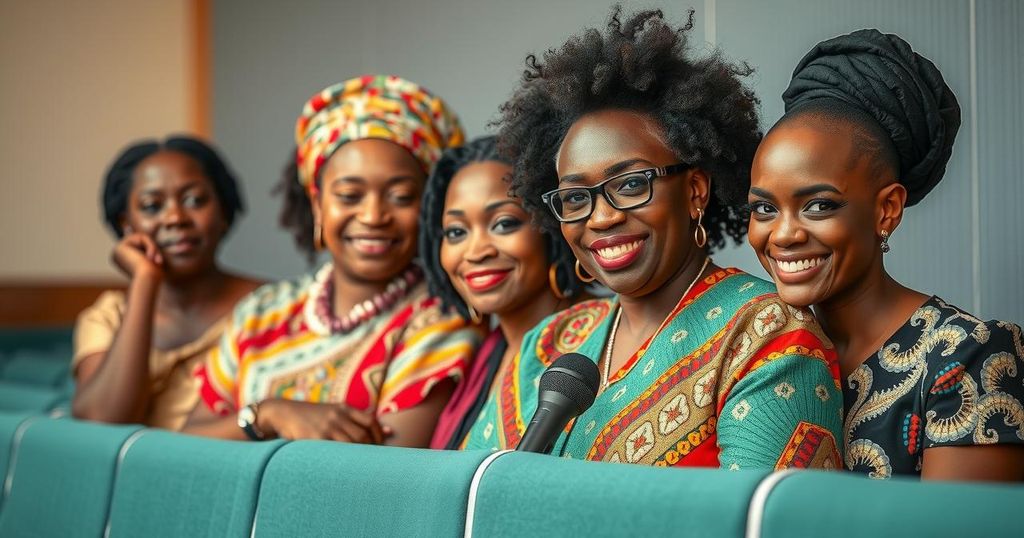Addressing Women’s Underrepresentation in Botswana’s Political Arena: A Call for Reform

Botswana faces a significant challenge with women’s underrepresentation in parliament, with only 28 women candidates in the last elections and only three securing seats. Despite women holding over half of the eligible voter base, political representation remains disproportionately low. Political parties must reform their candidate selection to ensure women’s inclusion ahead of the 2024 elections. Historical initiatives like the SADC gender checklist highlight the need for systemic change to promote gender parity in political arenas.
Botswana’s political landscape raises a pertinent question: “bomme ba kae?” or “where are the women?” This inquiry has gained urgency with the upcoming 2024 general elections, especially in light of the disappointing statistics from the 2019 elections, where only 28 out of 258 parliamentary candidates were women, amounting to a mere 10.85%. Ultimately, only three women secured seats, constituting 4.92% of the 61 available, which is a decline from 5.26% the previous cycle.
Despite women comprising 54% of eligible voters in Botswana, their representation in leadership roles remains shockingly low. To foster a more inclusive democracy that adequately represents all citizens, Botswana’s political parties must critically assess their internal structures and candidate selection processes. This imperative is vital not only for enhancing gender parity but also for the legitimacy and functionality of these democratic institutions.
In 2002, the Southern African Development Community (SADC) introduced a gender checklist aimed at ensuring gender equality throughout electoral processes. Several neighboring countries have since integrated constitutional provisions promoting women’s inclusion and striving to achieve gender parity.
With the need for increased female representation in governance evident, it is essential for political entities in Botswana to embrace reforms that facilitate the election of women candidates. Holding parties accountable for their role in this endeavor is paramount, particularly as the nation prepares for crucial elections.
The issue of women’s representation in Botswana’s parliament is compounded by the historical context of gender inequality in political engagement. Despite women forming a significant portion of the electorate, systemic barriers persist that hinder their access to political power. In recent elections, the under-representation of women has become glaringly apparent, highlighting an urgent need for reform within political parties and institutions. Various regional initiatives, such as the SADC gender checklist, represent efforts to address these disparities and promote gender equality within the political domain.
In summary, the representation of women in Botswana’s political landscape is critically low, with only a small fraction achieving parliamentary seats. It is imperative for political parties to reassess their approaches to candidate selection and governance to create an environment that supports female leaders. As the nation approaches the 2024 elections, enhancing women’s representation should be a guiding principle for fostering a more inclusive and democratic political system. Without significant change, the question “bomme ba kae?” will continue to resonate in Botswana’s political discourse.
Original Source: constitutionnet.org







